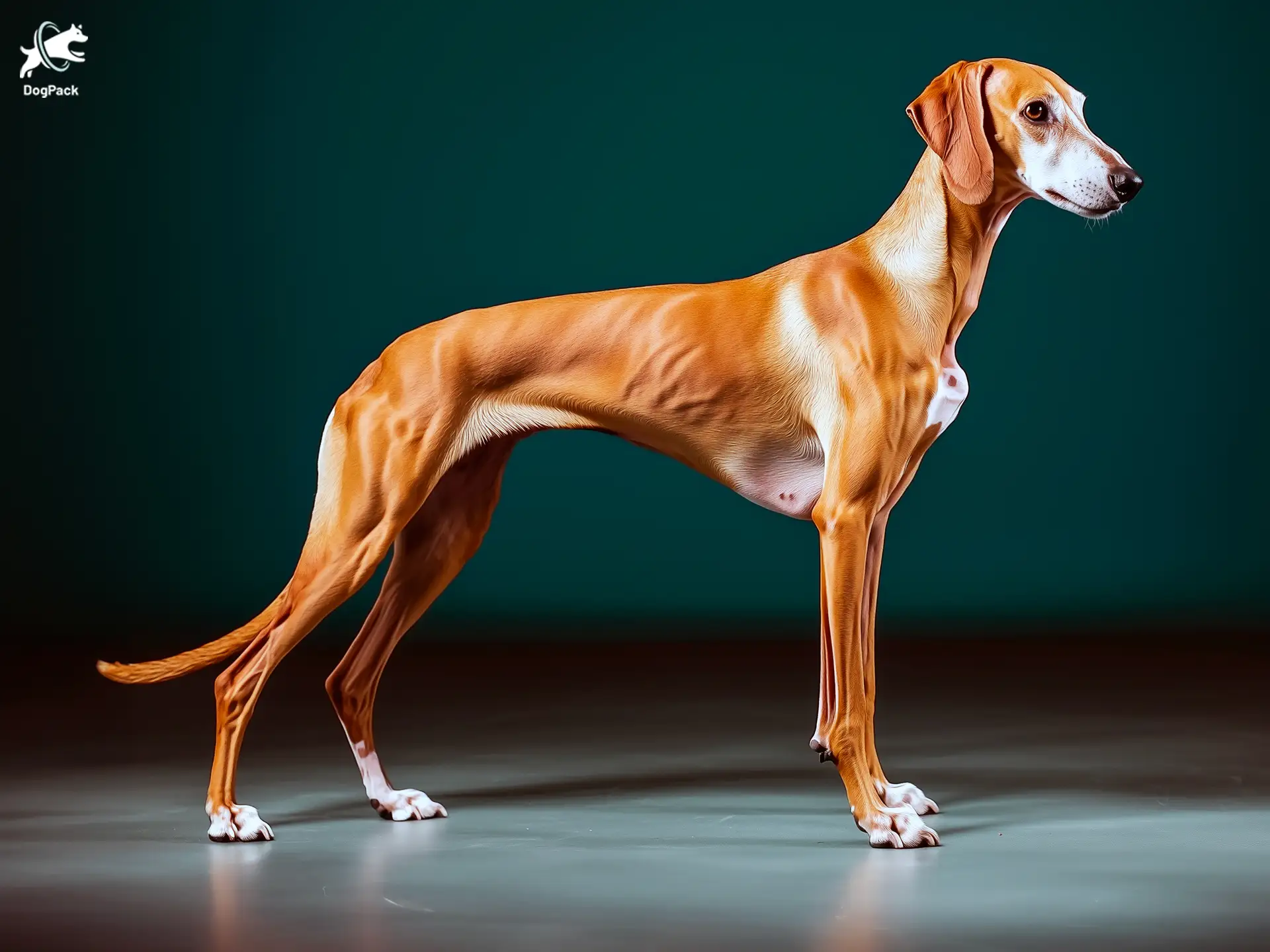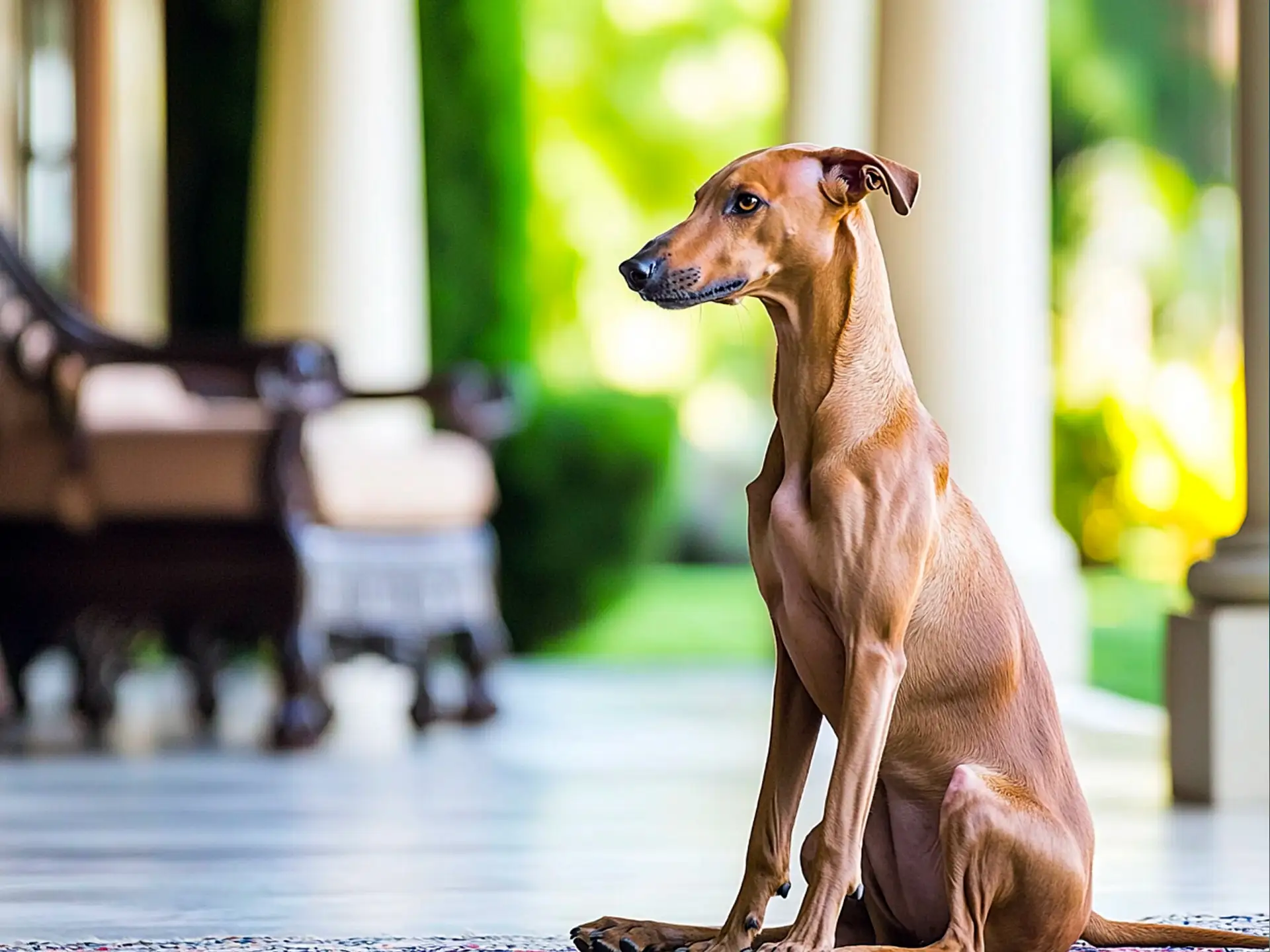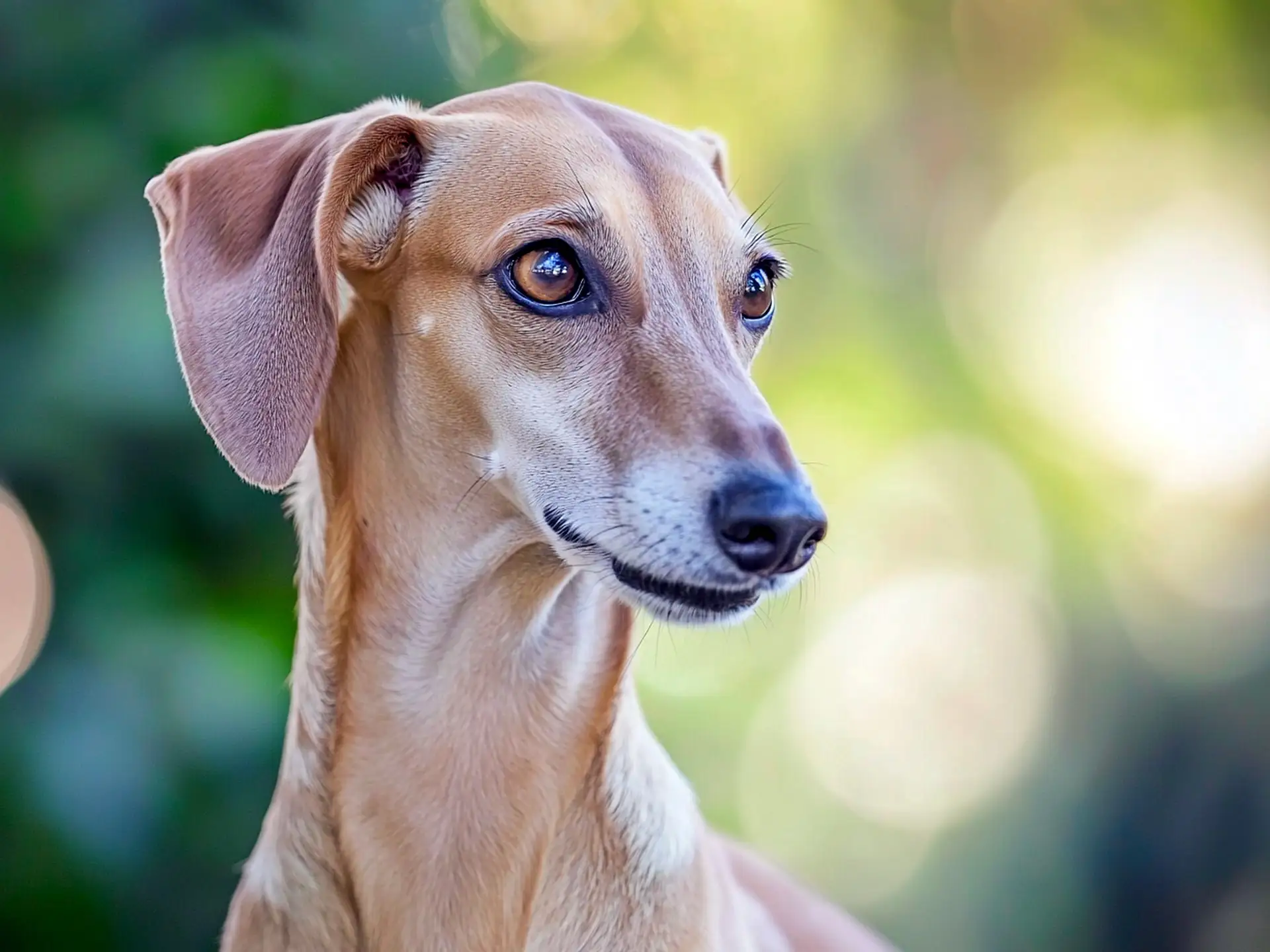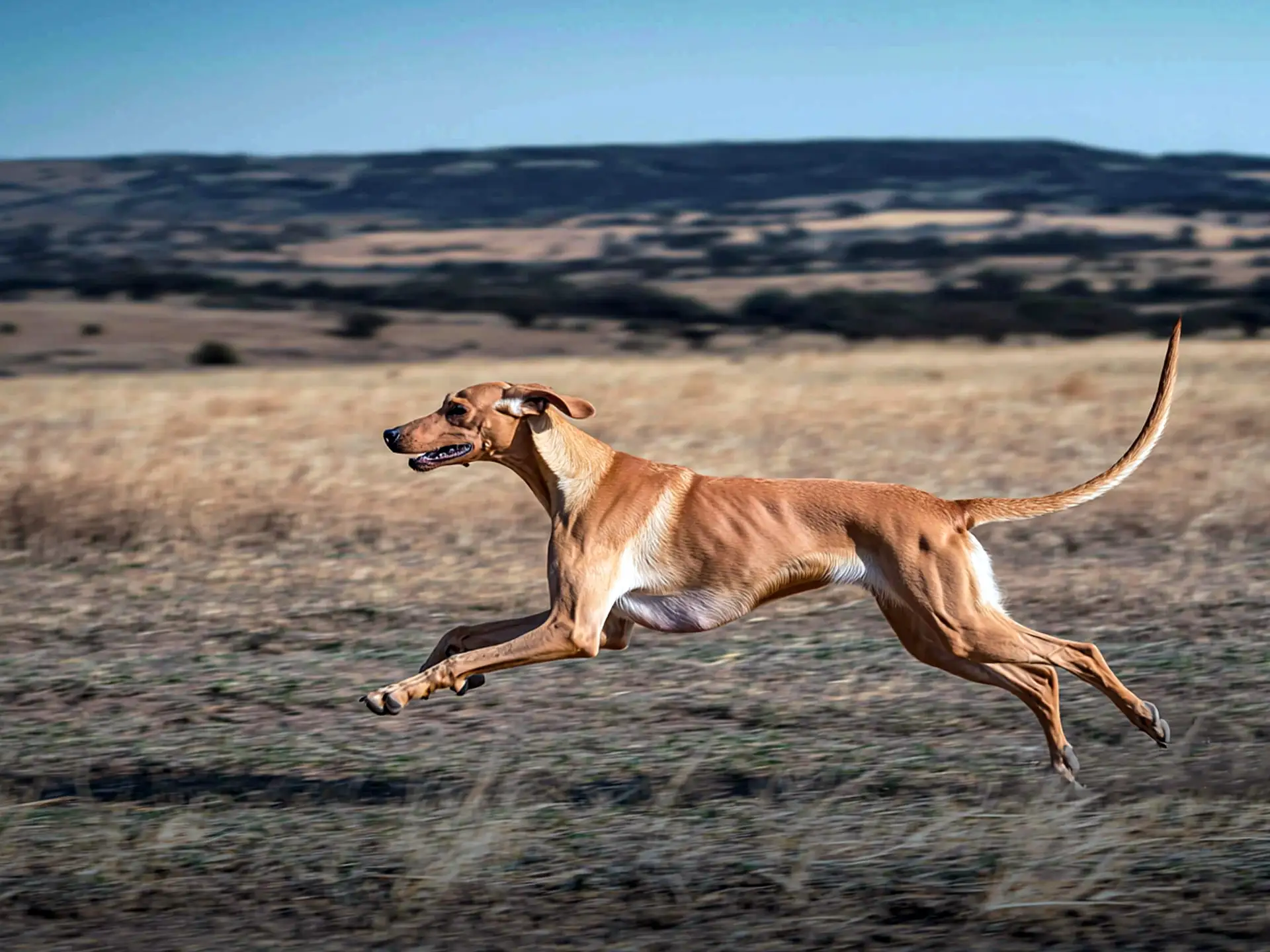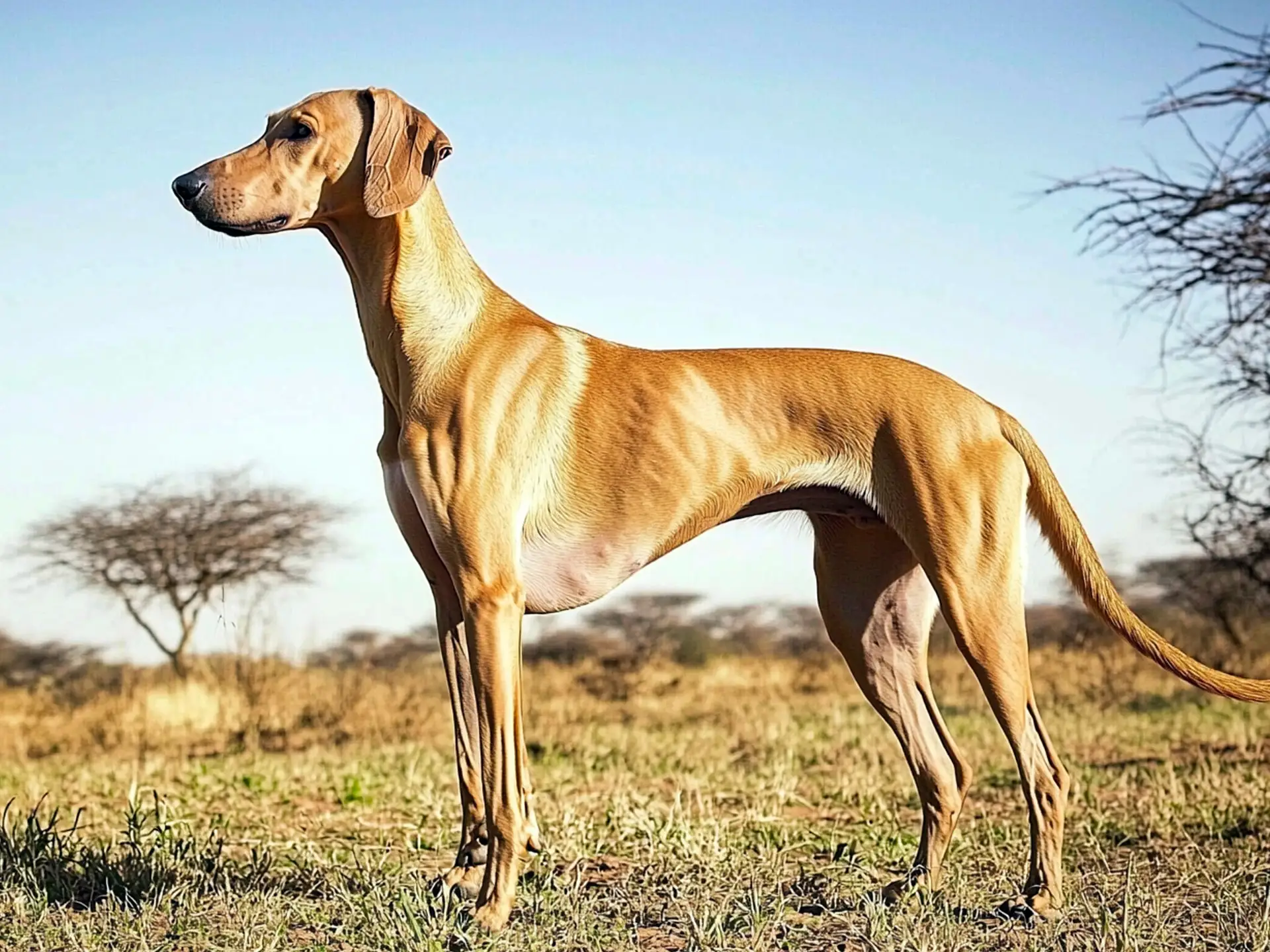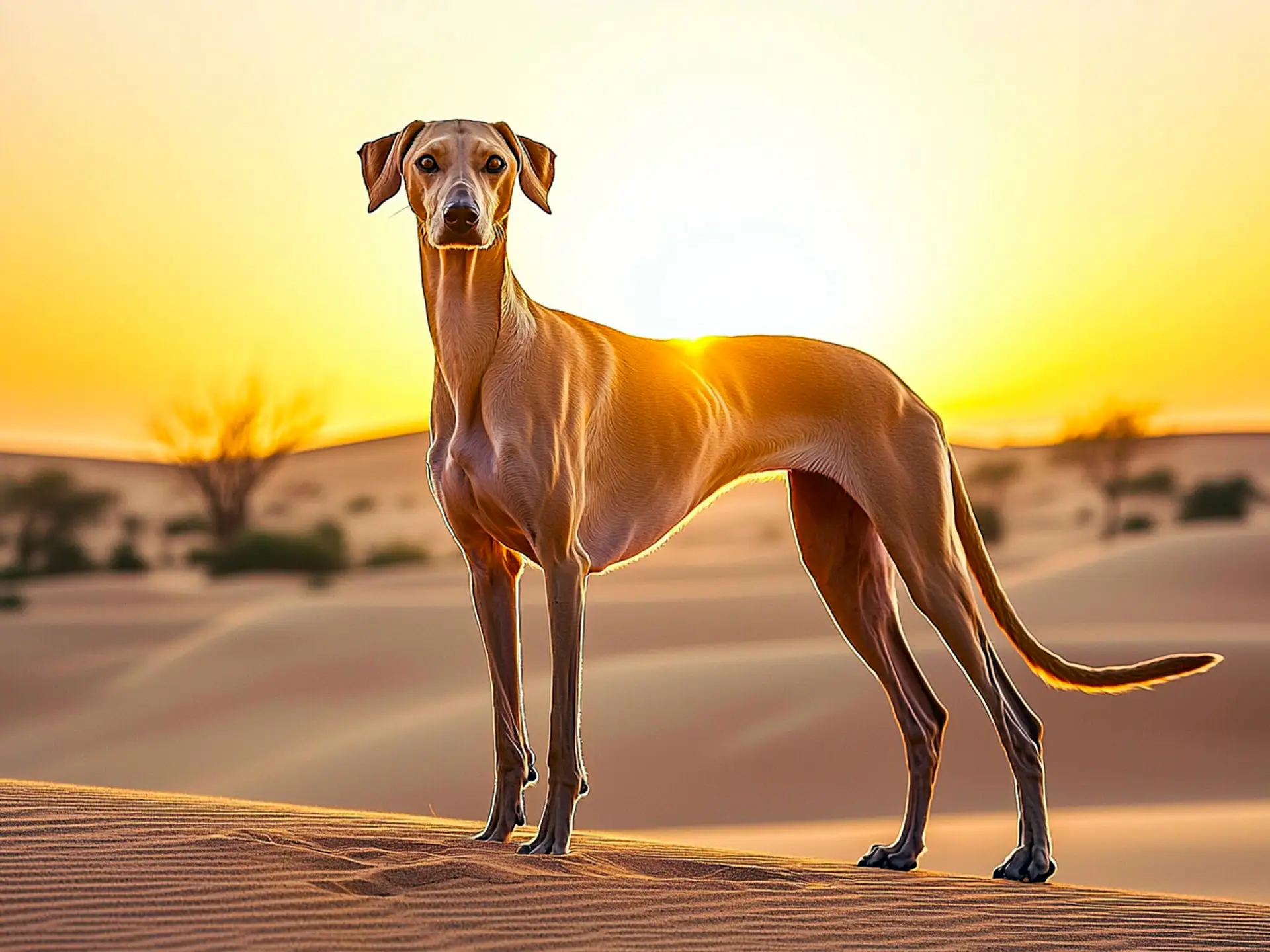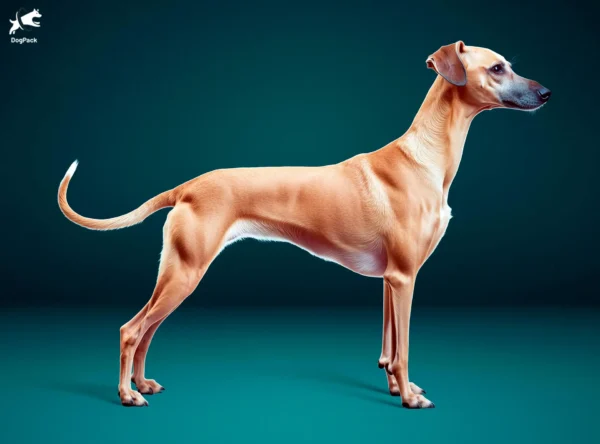Azawakh Dog Breed Info & Overview
The Azawakh, a rare sighthound from the Sahel region of West Africa, is both graceful and resilient. Bred to guard and hunt alongside nomadic tribes, these elegant dogs are known for their speed, loyalty, and independent nature. Their slim, striking appearance and deep-rooted history make them a breed like no other. With a keen protective instinct and a calm, dignified demeanor, the Azawakh is a fascinating companion for those who appreciate their beauty and spirit.
Characteristics
Pictures
Breed History
Originating from the Sahel region of West Africa, the Azawakh has been a cherished companion of the nomadic Tuareg people for centuries. These dogs were not only hunters but also guardians, protecting camps and livestock from predators. Their history is deeply intertwined with the desert tribes who valued their speed and loyalty.
Named after the Azawagh Valley, these sighthounds were bred for endurance and agility, enabling them to chase game across vast desert expanses. Unlike other breeds, the Azawakh’s lineage remained relatively pure due to the isolation of their homeland. This has resulted in a dog uniquely adapted to the harsh Saharan environment.
Introduced to Europe in the 1970s, the Azawakh began to gain recognition among enthusiasts for their striking appearance and rich cultural background. Despite their growing popularity, they remain rare outside their native regions. Preservation of the breed is important to maintain their historical and genetic heritage.
Temperament, Personality
The Azawakh is known for its deep loyalty and affection towards its family, forming strong bonds with those they trust. However, they can be reserved or aloof with strangers, often exhibiting a dignified and independent demeanor. Early socialization is key to helping them adapt to new people and environments.
These dogs have a strong prey drive due to their hunting origins, so they may not be the best fit for homes with small pets. Their intelligence and sensitivity require gentle yet consistent training methods. The Azawakh thrives when they feel respected and understood by their owners.
While they can be affectionate, the Azawakh also appreciates having their own space. They are not typically clingy but will enjoy quiet companionship. Their temperament makes them well-suited for experienced dog owners who appreciate a breed with a complex and noble character.
Physical Characteristics
With a tall and slender build, the Azawakh is a picture of elegance and agility. Their lean musculature and long legs are perfectly adapted for speed and endurance, enabling them to cover great distances with ease. Their distinctive appearance sets them apart from other sighthounds.
Their short, fine coat comes in a variety of colors, including sand, fawn, brindle, and various shades of red. Some may have white markings on the legs, chest, or tail tip. The Azawakh’s almond-shaped eyes and attentive expression reflect their keen intelligence.
Standing between 25 to 29 inches tall and weighing between 33 to 55 pounds, the Azawakh is both graceful and athletic. Their skin clings tightly to their bodies, emphasizing their lean physique. This unique combination of features contributes to their striking and noble presence.
Health Issues
Generally, the Azawakh is a healthy breed with few genetic health problems. However, like all breeds, they can be prone to certain conditions. One such concern is epilepsy, which can be managed with proper veterinary care.
Due to their deep chest, Azawakhs may be susceptible to bloat, a serious condition requiring immediate attention. Owners should be cautious about feeding routines and avoid vigorous exercise immediately after meals to minimize risk. For more on preventing bloat, consult this guide.
Regular health check-ups are essential to monitor for any potential issues. Maintaining a balanced diet and appropriate exercise regimen will contribute to the overall well-being of the Azawakh. Responsible breeding practices also help reduce the prevalence of hereditary conditions.
Grooming Needs
One of the advantages of owning an Azawakh is their low-maintenance coat. Their short, fine hair requires minimal grooming, typically just a weekly brush to remove loose hairs and keep their coat shiny.
Bathing is only necessary occasionally, as over-bathing can strip their skin of natural oils. Their sensitive skin benefits from gentle, hypoallergenic shampoos when a bath is needed. Regular grooming sessions also provide an opportunity to check for any skin issues or parasites.
Don’t forget routine care such as nail trimming, ear cleaning, and dental hygiene. The Azawakh’s nails should be kept short to prevent discomfort, especially given their active nature. Keeping up with these simple grooming tasks will ensure your Azawakh stays healthy and comfortable.
Exercise Requirements
High energy and athleticism mean the Azawakh needs plenty of daily exercise to stay happy and healthy. Long walks, runs, or play sessions in a securely fenced area are ideal to meet their physical needs.
These dogs excel in activities that allow them to stretch their legs, such as lure coursing or agility training. Mental stimulation is also important, as the Azawakh is an intelligent breed that enjoys engaging challenges.
Without sufficient exercise, the Azawakh may become bored or restless, leading to undesirable behaviors. Owners should be prepared to dedicate time each day to active pursuits, making this breed best suited for those with an active lifestyle. Check out other high-energy breeds for comparison.
Training Tips
Training an Azawakh requires patience and understanding. Their independent nature means they may not always be eager to please, but they respond well to positive reinforcement techniques that respect their intelligence.
Early socialization is crucial to help them become well-rounded adults. Exposing them to different people, places, and situations will build their confidence and reduce any tendencies toward shyness or aloofness.
Consistency is key, but harsh methods should be avoided as they can damage the trust between you and your Azawakh. Short, varied training sessions keep them engaged, and incorporating play can make learning enjoyable for both of you.
Nutrition, Diet
A high-quality, balanced diet is essential for the Azawakh to maintain their lean physique and energy levels. Due to their unique metabolism, they may require a diet higher in protein and fat compared to other breeds.
Portion sizes should be appropriate for their weight and activity level. For an adult Azawakh weighing around 50 pounds, this may equate to approximately 2 to 3 cups of high-quality dry food per day, divided into two meals.
Always consult with your veterinarian to determine the best dietary plan for your individual dog. Adjustments may be necessary based on age, health status, and exercise routine. Fresh water should always be available to keep them hydrated.
Adoption, Breeders
Given the rarity of the Azawakh, finding a reputable breeder is crucial. Prospective owners should research breeders who prioritize health, temperament, and the preservation of the breed’s unique qualities.
Adoption is also an option, though Azawakhs are less commonly found in shelters. Organizations like the American Azawakh Association provide resources for those interested in the breed and may assist with rescue opportunities.
When choosing a breeder, ask about health screenings and meet the parent dogs if possible. This ensures you’re bringing home a healthy puppy with the best chance of a long, happy life. Remember, a responsible breeder will be as interested in you as you are in their dogs.
Family Pet?
The Azawakh can make a wonderful family pet for the right household. They form strong bonds with their families and can be affectionate and gentle with those they trust.
However, their reserved nature means they may not be immediately friendly with strangers or young children who don’t understand boundaries. Supervision and teaching children how to interact respectfully are important.
The Azawakh’s compatibility with other pets varies. Their high prey drive can be an issue with small animals, but with proper introductions and socialization, they can coexist peacefully with other dogs, especially those they are raised with.
Right For You?
Choosing an Azawakh means embracing an active, independent, and intelligent companion. They are best suited for experienced dog owners who appreciate their unique characteristics and are willing to invest time in training and exercise.
If you lead an active lifestyle and value a dog with a rich history and dignified presence, the Azawakh may be a perfect match. Their loyalty and companionship can be deeply rewarding for those who understand their needs.
However, if you’re looking for a low-energy lap dog or are a first-time dog owner, this breed may present challenges. Carefully consider your lifestyle and whether you can provide the environment and commitment an Azawakh requires.
Conclusion
With their striking elegance, rich heritage, and loyal nature, the Azawakh is a breed like no other. They thrive with owners who respect their independence and meet their physical and mental needs. If you’re seeking a devoted companion to share in an active lifestyle, the Azawakh might just be the perfect addition to your family.
FAQs
-
Are Azawakh dogs good with other pets?
Azawakh dogs have a strong prey drive, which can make living with small pets challenging. Early socialization and proper introductions are key if you have other animals at home.
-
How much exercise does an Azawakh need daily?
An Azawakh requires at least 1 to 2 hours of exercise each day. Activities like running, agility training, or lure coursing are excellent to meet their high energy levels.
-
Do Azawakh dogs bark a lot?
Azawakh dogs are generally quiet and don’t bark excessively. However, they can be alert watchdogs and may bark to signal the presence of strangers or unusual activity.
-
What is the lifespan of an Azawakh?
The Azawakh typically lives between 10 to 12 years. Providing proper nutrition, exercise, and regular veterinary care can contribute to a healthy, long life.
-
Are Azawakh dogs suitable for apartment living?
Due to their high energy and need for space to run, Azawakh dogs are better suited to homes with large, secure yards. Apartment living may not provide enough room for their exercise needs.
Breed Ratings
The Azawakh is intelligent and learns quickly but may show independence during training, requiring patience and consistency.
While they enjoy playtime, especially with their family, the Azawakh can also be reserved and appreciates quiet companionship.
High energy levels mean the Azawakh needs ample daily exercise to stay happy and prevent boredom-related behaviors.
With their short coat, Azawakhs shed minimally, making grooming easy and maintenance low.
A strong prey drive is inherent in the Azawakh, so caution is needed around small animals and during off-leash activities.
Grooming needs are minimal due to their short coat, requiring only occasional brushing to keep them looking their best.
They are intelligent but can be independent, so training requires patience, positive reinforcement, and consistency.
Azawakhs can become anxious if left alone for long periods; they thrive on companionship and interaction.
Generally quiet, the Azawakh doesn’t bark excessively but will alert when necessary, making them good watchdogs.
Drooling is minimal in this breed, so you won’t need to worry about slobber around the house.
With proper socialization, they can get along with other dogs, but early introductions are important due to their independent nature.
Generally healthy with few genetic issues, but attention to diet and exercise is important to prevent common canine ailments.

